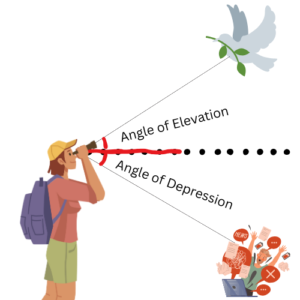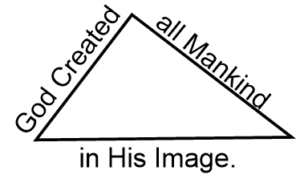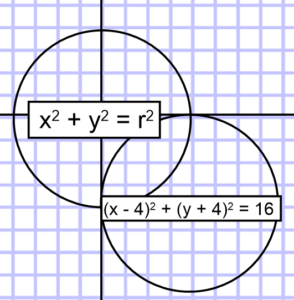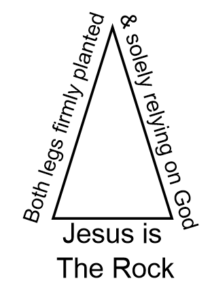
A Different Perpective


I have been actively working on Blogging and I decided to also post on this site. But it feels like a ghost town. I think on FB at least it gives me stats on the number of people who click on it and read my posts. So if I don’t get likes or comments as least I know that someone is reading it. Can you tell me if anyone is actually reading my posts?
Mary
“So God created mankind in His Own Image, in the Image of God He created them; male and female He created them.” Gensis 1:27
In a world often divided by differences, we tend to fear what is dissimilar to us. We engage in heated arguments with those who hold contrasting opinions, and we sometimes believe that there can be no connection with people who seem entirely unlike us. However, amidst this divisiveness, there is a powerful lesson we can learn from the humble scalene triangle.
The scalene triangle, a basic geometric shape, is unique in that it has no equal sides and no equal angles. Each side of the triangle stands alone, seemingly disconnected from the others, yet they all converge at a single point, forming a complete triangle. At first glance, these lines appear to be unrelated, but when they come together, they create a harmonious whole. In essence, the scalene triangle symbolizes the potential for connection among seemingly unconnected elements.

According to Christian belief, Jesus Christ, through His sacrifice on the cross, brings together disjointed lives and dysfunctional families to create something unique and beautiful, much like the scalene triangle. When Jesus gave His life for us, He tipped the scales, allowing us to approach God as His beloved children, We are all His Children.
In our own lives, we often feel disjointed, unequal, and seemingly random, just like the sides of a scalene triangle. But just as Jesus can transform our lives, He can also make connections with others that defy human understanding. He can use our unique qualities, experiences, and perspectives to bring people together for His Glory. Just as the scalene triangle’s sides, which have nothing in common, come together at a vertex to create a triangle, so too can individuals with diverse backgrounds and perspectives come together to achieve something greater for God.
So, the next time you encounter a scalene triangle, let it serve as a reminder of the remarkable power of connection. Just as these seemingly unrelated lines can form a triangle, so too can individuals from different walks of life find common ground and create unity. We must allow Jesus to heal the divisions in our lives and communities, transforming our disjointed existences and allowing Him to turn us into His Masterpiece.
“Trust in the Lord with all your heart and lean not on your own understanding; in all your ways submit to Him, and He will make your paths straight.” Proverbs 3:5 – 6
In the hustle and bustle of today’s world, it’s all too easy to find ourselves pulled in multiple directions, our attention fragmented by a constant stream of distractions. It’s as if we are constantly in search of our center, a point of balance that seems increasingly elusive. In the realm of mathematics, there’s a concept known as the parent graph, which serves as the foundation for various functions and equations. This parent graph is centered precisely at the origin of the graph, serving as its focal point. In our lives, just like in math, we need a center, that center is God.
Picture a simple circle on a graph with its center point at (0, 0). This circle is centered at the origin, undistracted by circumstances. But life is seldom as straightforward as mathematics. Distractions, challenges, and temptations continually enter our lives, shifting our center of focus away from where it should be: God. Our lives can easily be compared to that circle on the graph, where external factors pull our center of attention in different directions.

When our center shifts from God to worldly distractions, we start to feel adrift, lost in the chaos of life. The more we allow these distractions to consume us, the farther we drift from God. It’s a pattern familiar to many, as the pressures of daily life, ambitions, and desires lure us away from what truly matters.
But here’s the key: just as in mathematics, where we can recalibrate our graphs and equations to return them to the origin, God has the power to reset our focus and realign our lives with Him at the center. It’s a conscious choice to eliminate the distractions that have crept in and to reevaluate our priorities.
Returning to God as our central focus isn’t about ignoring our circumstances or situations. It’s about viewing them through a different lens, one that acknowledges His presence and guidance in our lives. When God is our center, we gain clarity of purpose, a sense of peace, and resilience in the face of life’s challenges. We become less swayed by the ever-changing currents of the world and more anchored in our faith.
The journey back to God as our focus is a personal and ongoing one. It involves regular self-examination, prayer, and reflection. It means making choices that prioritize our spiritual well-being and nurture our relationship with God. It’s about recognizing that the distractions and temptations of the world will always be there but understanding that we have the power to choose where we anchor our focus.
In a world filled with endless distractions, it’s crucial to pause and ask yourself: “Where is my focus?” Is it on the fleeting pleasures and worries of the world, or is it on something greater, something eternal? Much like recalibrating a graph to its origin, shifting our focus back to God can bring clarity, purpose, and a deep sense of fulfillment to our lives. It’s a choice worth making, for in God, we find our true center, our unwavering focal point amidst the chaos of life.
“But seek first His Kingdom and His Righteousness and all these things will be given to you as well” Matthew 6:33
In life, the strength of our foundation can often determine the stability and success of our endeavors. Like an isosceles triangle with its two equal legs firmly grounded on a solid base, we, too, must ensure that our foundation is on The Rock in order to weather the storms of life.
The term “Isosceles” finds its roots in Greek, where it means “equal legs.” This symmetry is more than just a mathematical concept; it can serve as a powerful metaphor for our lives. Just as the two legs of an isosceles triangle are of equal length, we must have both legs in the foundation of Jesus, our base.

In the parable of the wise and foolish builders, Jesus emphasized the importance of a strong foundation. A house built on solid rock withstood the storms, while one built on sand crumbled. This parable isn’t just for non-Christians; it’s a lesson for all, including especially Christians.
Our lives often mirror this parable. We may construct “houses” such as ministries or future plans on sandy foundations, believing them to be secure. Yet, it’s only when we bring our plans and desires before God and first seek His will that our foundations our built on Him.
It’s easy to assume that our good intentions align with God’s will. However, God’s plans are the only ones built on The Rock: Jesus. Many times, we discover that our own plans are not in sync with His purpose. This can be disheartening, even painful, as we watch our carefully laid-out plans crumble.
Instead of clinging to our own designs and desires, we should surrender them to God. By submitting to His will, we allow Him to reshape our plans and dreams into something that truly stands the test of time. It might be difficult to let go, but the results can be eternal.
Remember, it’s not about what we want, but what God wants for us. His plans are the ones that will endure, and they will lead to a more fulfilling and purposeful life. So, let go of the sand and embrace the Rock, and watch as God’s plans unfold in your life, bringing stability and joy beyond measure.





Your family might think you are nuts; Your friends worry about the social skills of your children, and there are so many choices for a curriculum that it is just overwhelming. This is a great adventure you are embarking on. It might seem daunting, but it is not. Embrace the challenge, and know there are some things you can do to make the journey a little less bumpy.
First, I would suggest finding a good co-op. A co-op is short for cooperative. This is exactly what it sounds like. Parents come together and share their individual strengths to help each other educate their children. At first, this might sound like more work, but there is a big secret about co-ops: co-ops are not really for your kids but for you! You need someone to cheer you on without questioning your sanity. Plus, those great friends are going to give you ideas of what worked and what did not work with the curriculum. What works for one child may not necessarily work for all your children. The people you meet at co-ops are wonderfully god-fearing, and they give you the ability to keep going on those tough days. Do not discount the importance of a support group during this time. I remember play dates in the park, amazing field trips, shared laughter, and crying. Most importantly, I remember being strengthened to stay the course.
Second, do not be afraid to ask for advice. I wanted to look like I had it all together. I am sure you do, too, especially if friends and family are doubting your decision to homeschool. But do you know what? No one actually does have it all together. If you do not feel comfortable teaching a subject, especially as they get older, then share responsibilities. Co-ops are a major part of helping in this department. So are online classes. There is nothing wrong with seeking help when you need it. It is worth the risk of seeming incompetent.
Lastly, if you remember that your child doesn’t need to know everything there is to know before they graduate, the pressure is off. Teaching children to love learning, helping them to know how to learn, and leading them by example if far more important than curriculums or knowing gads of facts. Keep in mind the end goal. Keep in mind no education is perfect. When I think of my public school education which graduated me with barely any reading skills, I realize I did the right thing by homeschooling my children. And I loved doing it well most days!
Let us mention the biggest fear you have right now: I might ruin my child’s education. No, you will not. You love them too much. No one cares more about your child’s education than you do. You were made to be their first and best teacher. The best advice I give newbies is that you just must be smarter than your child by one day. If you are not smarter than them, then go to the park and get smarter that night. We all had that fear, and your children will not understand or appreciate your sacrifice. Even so, all the effort is worth the end result. Treasure this time with your children, and don’t let anyone or anything, especially fear, keep you from it.
For more on homeschooling and help, visit www.hisvesselacademy.com
